Seventy years ago this week US Secretary of State George C. Marshall gave a speech at Harvard University in which he offered American aid to a destitute and fragile Europe if it proved willing and able to help itself. Britain, and in particular Foreign Secretary Ernest Bevin, took up the gauntlet by coordinating the necessary European response. As a result, between 1948 and 1950, the US channelled $12 billion into the European Recovery Programme. Britain received the lion’s share of $2.7 billion. The US offer and Soviet response set the emerging Cold War division of Europe.
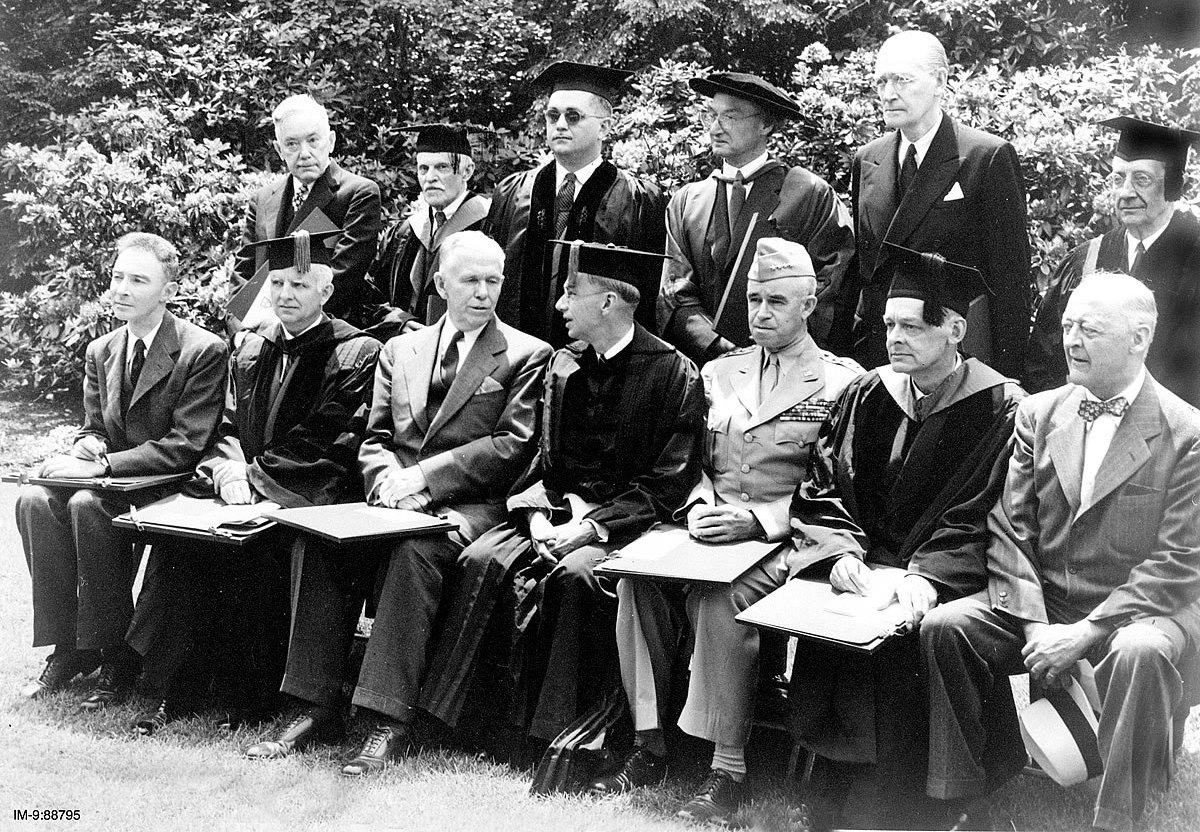
Uniting Europe
In the months following the Truman Doctrine senior US officials, though empowered and emboldened by victory in the Second World War, became convinced that the economic recovery of Europe was crucial to US security. Europe was not just an important market for American goods and services; its unity and prosperity was a strategic necessity. The war- and winter-ravaged continent appeared susceptible to Communist contagion. Free and democratic capitalism was the prescribed prophylactic. In March, Marshall had told Bevin that ‘The United States were ready to pay a high price for the Unity of Europe’[1] and tasked George Kennan, Director of Policy Planning at the State Department with figuring out ‘what could be done to promote world recovery’.
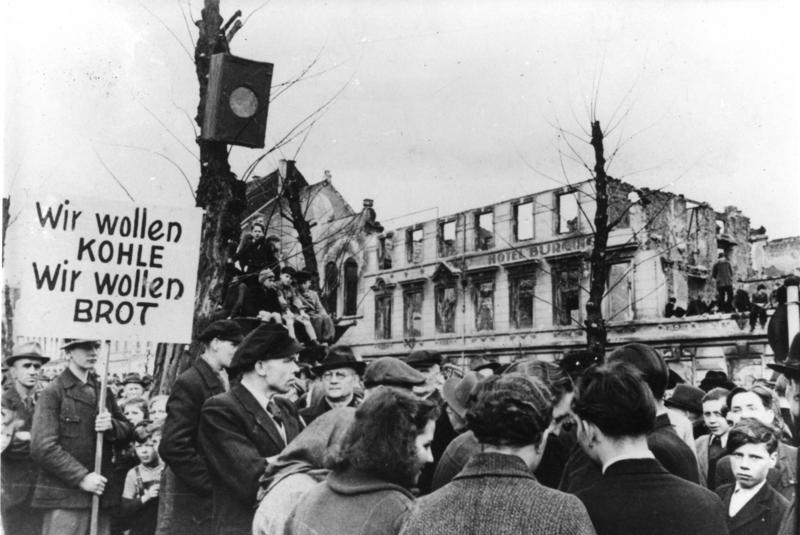
However, tensions within the US administration (between State Department, Treasury and Pentagon) on how best to help Europe and combat Communism were exacerbated by Congressional elections in the preceding November. The results left a Democratic President with the uphill battle of getting approval for Marshall Aid through a Republican controlled Congress.
Europe divided
Believing, with some justification, itself to be the greatest victim and victor of the Second World War, the Soviet Union was determined to maintain its hard-earned Great Power status. Like the US, the Russians had their own designs for a Europe that would best serve Soviet prosperity and security: German reparations, commerce and technology for the Soviet Union, Communist or Communist-dominated rule in the East, and sympathetic governments in the West (most likely in unstable Italy, France and Greece). Its leadership saw the Marshall Plan as another example of Anglo-American capitalist expansionism; excluding them from European markets and resources, and denying them the right to spread their own version of liberty and Communist egalitarianism.
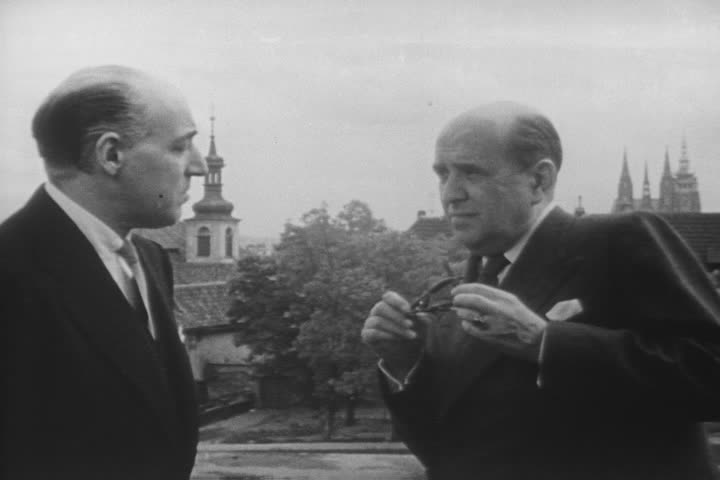
Consequently, at the Tripartite Foreign Ministers’ meeting in early July 1947, Soviet Foreign Minister Vyacheslav Molotov precluded Soviet involvement in the European recovery programme. He declared that it would put smaller states under the control of the Great Powers and divide Europe into two camps.[2] The Soviet leadership soon proved their own predictions by preventing the participation of their East European client states.[3] The creation of Cominform (Communist Information Bureau) in the autumn of 1947 and Comecon (Council for Mutual Assistance) in 1949 were direct responses to Marshall Aid. Their purpose was to coordinate an ideological assault by Communist parties upon the West and facilitate the economic development of the Eastern European countries of the Soviet bloc.
Britain at the helm
Bevin had been quick to act on Marshall’s bold and generous offer. Optimistic and pragmatic, he was determined to relieve Britain of its burden in occupied Germany and maintain Anglo-American solidarity for Western security in the face of Soviet encroachment and espionage which included an ever more evident desire to sabotage Marshall’s scheme. But Bevin was also fortunate that the experienced Georges Bidault returned as French Foreign Minister in January 1947. Together, sharing enthusiasm for economic cooperation in Western Europe, they ensured that American expectations of a united (West) European response to Marshall’s proposal were fulfilled. However, Commonwealth considerations meant that the Treasury and Board of Trade ensured that Britain resisted US pressure to form a Western European Customs Union.
Bevin was also helped by the intervention of John Snyder, US Secretary of the Treasury. In the summer of 1947 Snyder secured Congressional approval for the release of the final balance of the 1945 loan, untangling a knot that the US State Department had put into the Marshall Plan negotiations. British officials had left it too late to tell their US counterparts that they would have to break one of the key conditions of the loan, the convertibility of sterling, to avoid Britain’s financial ruin.
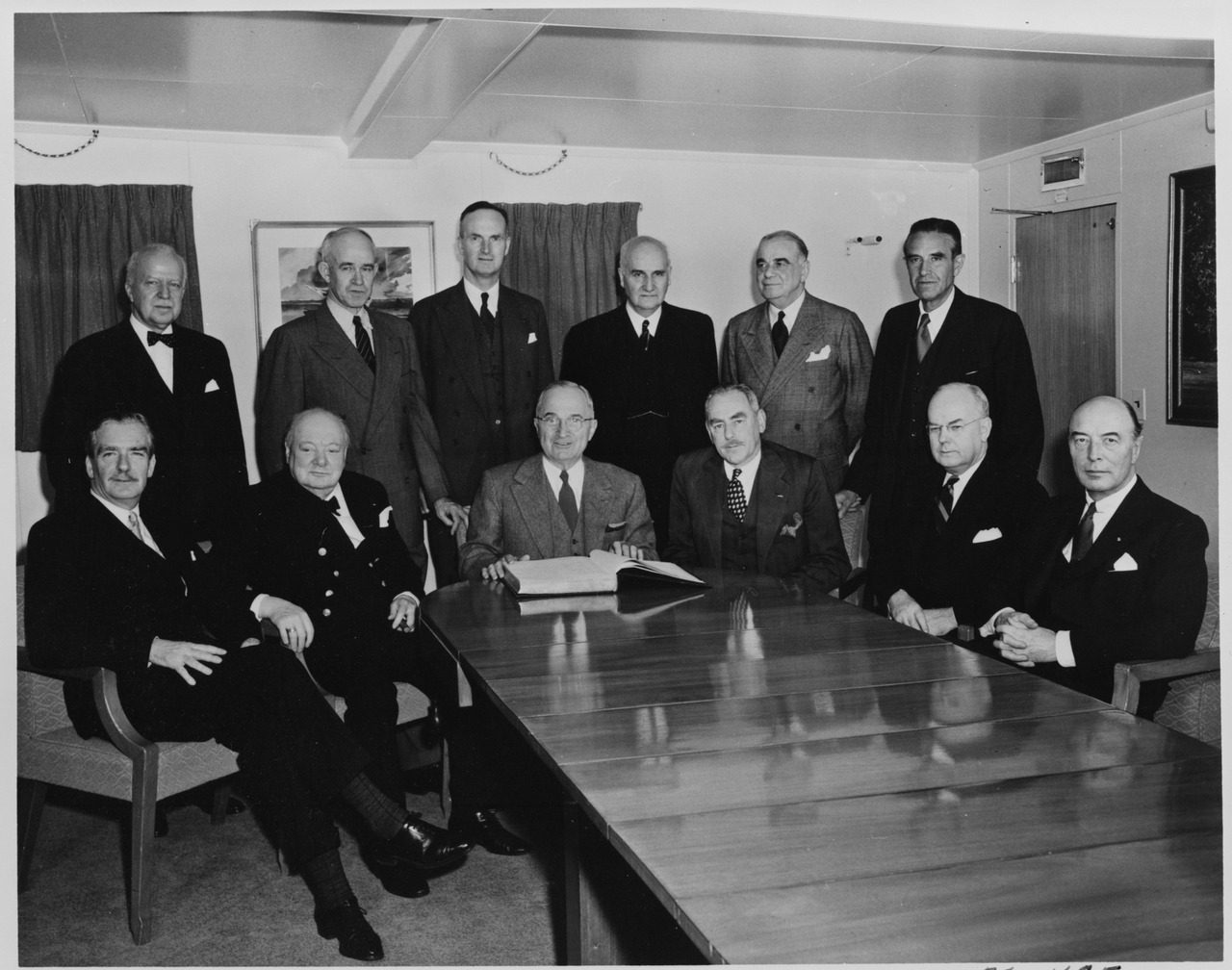
British diplomacy and the drafting of the European Recovery Programme also owed much to a small coterie of first-rate administrators and negotiators, not least Oliver Franks. A philosophy don and Provost of Queen’s College Oxford, Franks was called upon to lead the British delegation and chair, with little official guidance, the Conference on European Economic Cooperation in 1947. This would transform Marshall’s offer into a joint programme for recovery - avoiding the potential pitfall of merely presenting a wish list to the US - eventually approved by Congress.
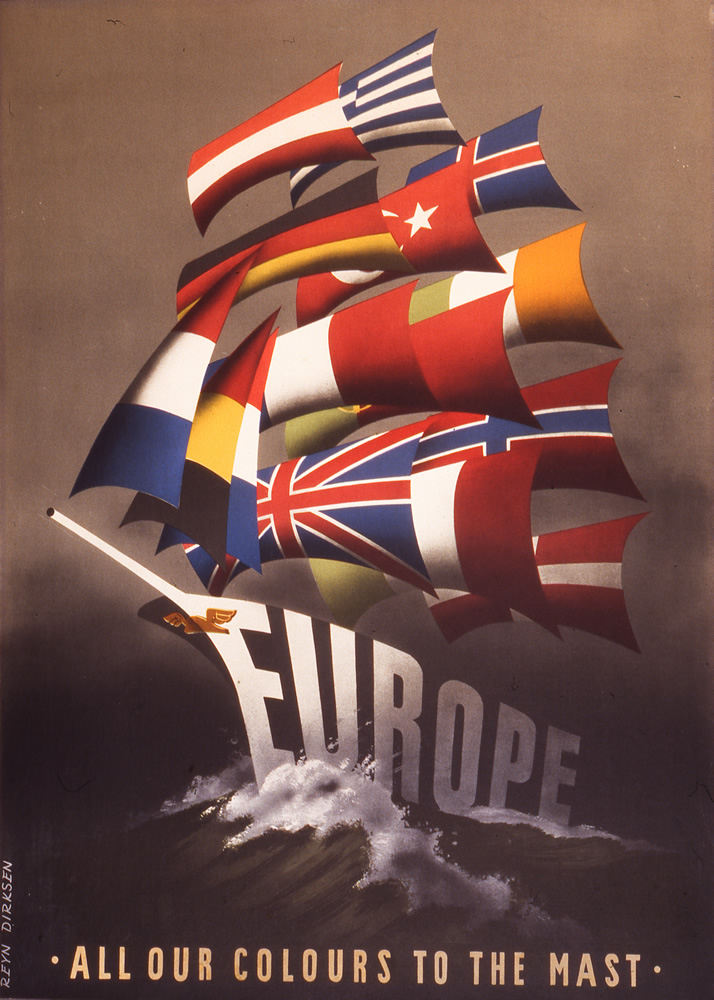
Britain’s post-war leadership in securing and unifying Western Europe would be short-lived. The Truman Doctrine and Marshall Aid relieved Britain of some of its post-war European responsibilities and so allowed it to concentrate on domestic reform and global commitments in particular Commonwealth commerce, and colonial development and security. In Europe, Britain ensured that the Organisation for European Economic Cooperation, set up to administer Marshall Aid, remained an intergovernmental rather than a supranational body, contrary to US hopes. It would be to France that the US would now turn to lead the integration of Western Europe.
Suggestions for further reading:
Documents on British Policy Overseas, Series I, Volume XI, European Recovery and the Search for Western Security (London: Routledge, 2017)
Alex Danchev, Oliver Franks: Founding Father (Oxford: Clarendon Press, 1993)
[1] Telegram from the British Embassy in Moscow reporting an informal conversation between Bevin and Marshall, 23 March 1947, printed in Documents on British Policy Overseas, Series I, Volume XI, No. 66
[2] Telegram from Tripartite Foreign Ministers’ meeting in Paris on Marshall initiative, printed ibid., No. 107
[3] Telegram from UK Delegation to the Economic Commission in Europe (Geneva), printed ibid., Nos. 113 and Telegram from the British Embassy in Paris reporting Czech Govt reversal of decision to attend Paris Conference, printed ibid., No. 116
Keep tabs on the past. Sign up for our email alerts.